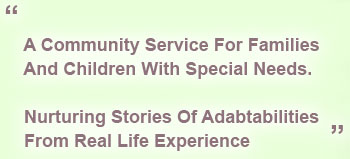References
“Calibrating the Physician: Personal Awareness and Effective Patient Care.” (Helpers’ personal characteristics, past experiences, values, attitudes and biases have important impact on communication.) Dennis Novack, JAMA, August 13, 1997 Vol. 278, No. 6.
Communicating for Cultural Competence, James Leigh, Waveland Press, Long Grove, Illinois1998.
Communicating Health, Pat Geist-Martin, et al., Thomson-Wadsworth, 2003.
Communication Skills, Peter Maguire, Oxford Press, London, 2000.
“Conducting an Intentional Interview,” Chapter 3 of Theories of Counseling: A Multicultural Perspective, Allen Ivey, et al., Allyn and Bacon, 2002.
Developmental Counseling and Therapy, Allen Ivey, Houghton-Mifflin, 2005.
Emotional Intelligence, Daniel Goleman, Bantum Book, 1995.
“Escaping the Lost World of Impossibility: Honoring Client’s Language, Motivation and Theories of Change,” Barry Duncan et al., The Handbook of Constructive Therapies, M., Hoyt, Jossey Bass, 1998.
Getting Through to People, Jesse Nirenberg, Prentice Hall, 1963.
Handbook of Health Communication, Teresa Thompson, Lawrence Erlbaum, 2003.
Health Behavior Change, Stephen Rollnick, Churchill Livingstone, 2000.
Motivational Interviewing, Wm. Miller, The Guilford Press, 2002.
Parenting from the Inside Out, Daniel Siegel and Mary Hartzell, Tarcher, 2003.
Raising an Emotionally Intelligent Child, (The heart of parenting, with Forward by Daniel Goleman.) John Gottman, Fireside Press, 1997.
“The Empathic Attitude: Individual, Family and Culture,” Chapter 2 of Theories of Counseling: Multicultural Perspective, Allen Ivey, et al., Allyn and Bacon, 2002.
“Toward Creating Physician-Healers: Fostering Medical Students’ Awareness, Personal Growth, and Wellbeing,” Dennis Novack, Academic Medicine, Vol. 74, No. 5, May 1999.
Treating Compassion Fatigue, Charles Figley, Brunner-Routledge, 2002.
“Using Life Narratives to Enhance Coping,” from Listening to Life Stories, Bruce Rybarczyk, Springer Pub., 1997.
Resources
An Internet site, www.physicianpatient.org, provides training, education and research on how to use communication to raise our quality of life and improve health outcomes.
Other sources for health communication: The organization American Academy on Physician and Patient publishes Medical Encounter, and in the Summer 2004 edition Alyce Getler wrote “In Very Good Hands: Transference in Acute Medical Care,” which tells how our experience, feelings and beliefs affect longevity of patient care. (This information was incorporated into our web text in Part I.)
We also like Wm. Miller’s web site www.motivationalinterview.org, which is a good introduction to, and training about, opportunities to elicit information and changes in behavior.
Finally, check out “Healthy People 2010” at www.healthypeople.gov, and look for Vol. 1, 2nd Ed. in the Contents. “Objectives for Improving Health #11” is about health communication and the importance of how people speak, and about how the way people relate to each other affects decisions about disease prevention and health promotion.
Two journals we read are Patient Education and Counseling from Elsevier and Health Communication from Lawrence Erlbaum. The latter is quite good, with ideas on motivation, cooperation and mutual understanding in a two-way relationship.
| [Back to Top] |








Social Networks
Follow Us